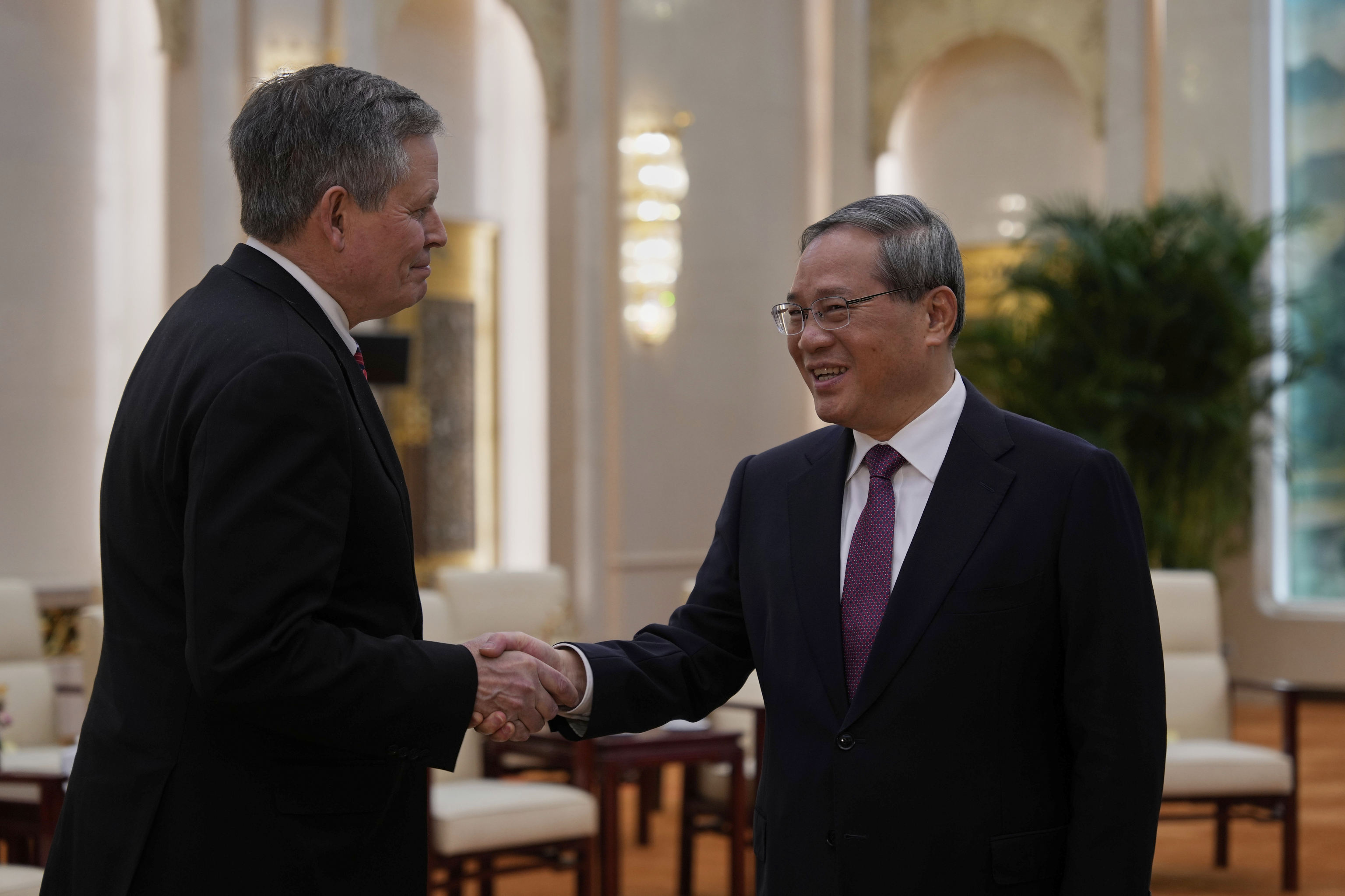Desperate to attract foreign investment, China has opened its doors to top executives from many of the world's largest multinational corporations. Around 80 senior executives from global companies paraded through Beijing on Sunday and Monday to attend the China Development Forum. This is an annual charm offensive by the Xi Jinping government aimed at major foreign business leaders. This year's event has gained special significance after the Asian giant experienced the largest drop in foreign direct investment since the 2008 global financial crisis.
"In today's increasingly fragmented world, with growing instability and uncertainty, it is more necessary for countries to open their markets and companies to resist risks and challenges," said Chinese Prime Minister Li Qiang on Sunday in front of dozens of foreign CEOs.
"We will focus on combining policy intensification with market force stimulation. We will implement more active and promising macroeconomic policies, further intensify countercyclical adjustments, and introduce new incremental policies as needed," continued Li, who is the top Chinese official in charge of economic matters.
The Prime Minister, in a clear reference to the trade war initiated by Donald Trump, urged business leaders to "resist unilateralism and protectionism" and to become "advocates and promoters of globalization." Li's message aligns with Beijing's strategy to intensify efforts to attract and retain foreign investment amid the new trade war - with Trump pressuring manufacturers to move production to the US in addition to tariffs - and economic growth slowdown.
Last week, the State Council of China released an action plan to attract foreign investment with measures such as facilitating cross-border data transfers, eliminating all access barriers in the manufacturing sector, and promising that foreign companies and their products would receive equal treatment in public procurement processes, which has been a long-standing complaint from international companies.
"Since the pandemic, there has been a significant crisis of confidence towards the Chinese market. Many companies tried to diversify their business after being affected by some repressive measures from the Government, from extreme pressure from regulators on technology companies, to unclear anti-espionage laws that targeted any entrepreneur from a country having issues with China at that time," say business sources with many years of experience in the Asian country.
According to official data from Chinese authorities, foreign direct investment decreased by more than 20% year-on-year in the first two months of 2025, after a 27% annual drop in 2024. Foreign companies' investment in fixed assets also decreased by 10%.
For Chinese state newspapers, the highlight of the forum has been global business leaders' concerns about the tariff measures launched by Trump. "No one wins in a trade war. No country can achieve development and prosperity by imposing tariffs," said Prime Minister Li in a meeting he held on Sunday with Republican Senator Steve Daines, who has been the first American politician to visit Beijing since Trump's return to the White House. "China always welcomes companies from all countries, including the United States," reiterated the Chinese leader.
In addition to the ongoing business forum in Beijing, officials from the Chinese Ministry of Commerce have met with at least a dozen foreign company executives in the past two weeks. According to ministry data, foreign companies contribute nearly 7% of the country's employment and 14% of its tax revenue.
On Tuesday, on the Chinese island of Hainan, the Boao Forum kicks off, dubbed by the Chinese press as the "Davos of Asia." In the financial capital, Shanghai, another major event is taking place this week with over 500 invited companies, both local and foreign, where new industrial projects will be signed with a total investment of over 1.1 trillion yuan, around 145 billion euros.
